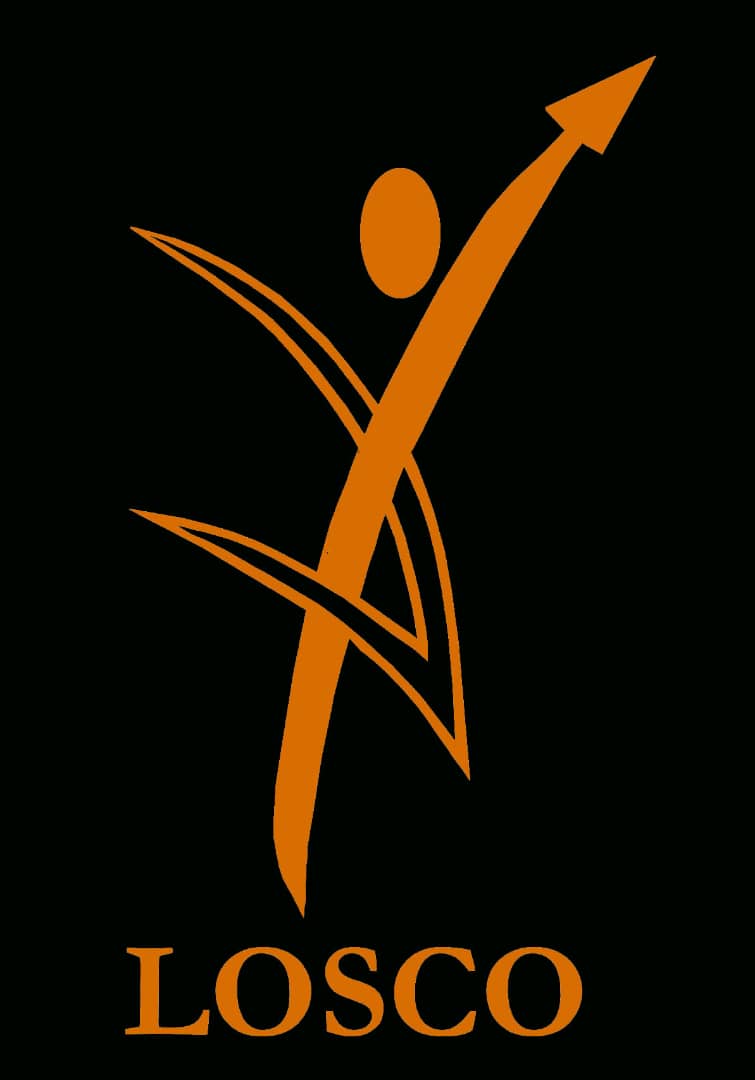NATIONAL DIALOGUE ON STATE OF ACCOUNTABILITY AND SERVICE DELIVERY HELD ON THE 28TH JULY 2022 AT HOTEL AFRICANA, KAMPALA
Strengthening Accountability chains in Health Service Delivery
Background
Accountability mechanisms and processes can play an important role in driving health equity
Health equity is broadly defined as the absence of inequities, which is the absence of differences in health that are not merely differences, but also unnecessary, avoidable, unfair and unjust
Improved transparency, oversight and accountability in public procurement helps ensure that public funds are not eroded by corruption
Money alone will not improve the quality of health service delivery
A study of the district health league table demonstrates that resources alone do not deliver on the quality health service delivery
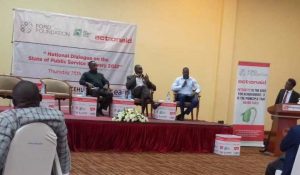
The state of Health care
- The health Subprogram has a budget allocation of 3.72 Tn despite being a critical ministry.
- Government contribution to the health sector budget is 57% thus depending on the funding from development partners.
- Health expenditure is 7.5 trillion. Of this, 15% is from government funding, 42% from donors and 41% from individuals (out of pocket) and 2% from insurance.
The Right to Health
Uganda adopted a colonial system that never recognized Uganda as citizens with rights
Human rights provide principles, standards, and processes that are grounded in international and national legal commitments.
The right to health is a universal right of people defined broadly in Article 12 of the United Nations International Covenant on Economic, Social, and Cultural Rights. However, SRHR and Services as well as sexuality education that needs special attention. HRBA in Health Service provision still has a lot to be desired since accessibility and equality are a challenge to PLWDs.
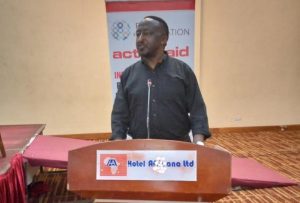 Key Accountability Issues
Key Accountability Issues
- Absence of Health workers from their duty stations during working time for instance at one of the Health Centre IVs in Kabale Municipality, Staff report to work between 10am – 12pm and leave for lunch at 1pm leaving their stations un attended for the rest of the day. Recently at another Health Centre in Ndorwa East a Baby was lost because the Midwives were playing cards. This is a very unfortunate occurrence.
- “Staff with no work stations”. This largely because of lack of equipment and facilitation towards service delivery and also the social services to the staff.
- Theft of drugs in Government health facilities for instance in Rukungiri District where four staff members were apprehended after they were caught with stolen drugs they were putting up for sale.
- Weak oversight mechanisms/ mechanism leaving the health service provision at the mercy of patients and selling the required medicines by the service providers at higher prices.
- Limited involvement of the community the management of the affairs of health facilities leaving them out of the participation aspect. This exposes the communities to manipulation and discriminations thus limiting the equality aspect of service delivery.
- Response to medical emergencies…the case of COVID-19 which also expose the patients and their attendants at the mercy of those drivers. The aspect of procuring fuel to attend to the emergencies leaves the poor citizens to suffer the fate.
- Financing structure of the health service delivery is still limited to non-prioritization aspect of budgeting process.
Week supervision and Monitoring of health service delivery
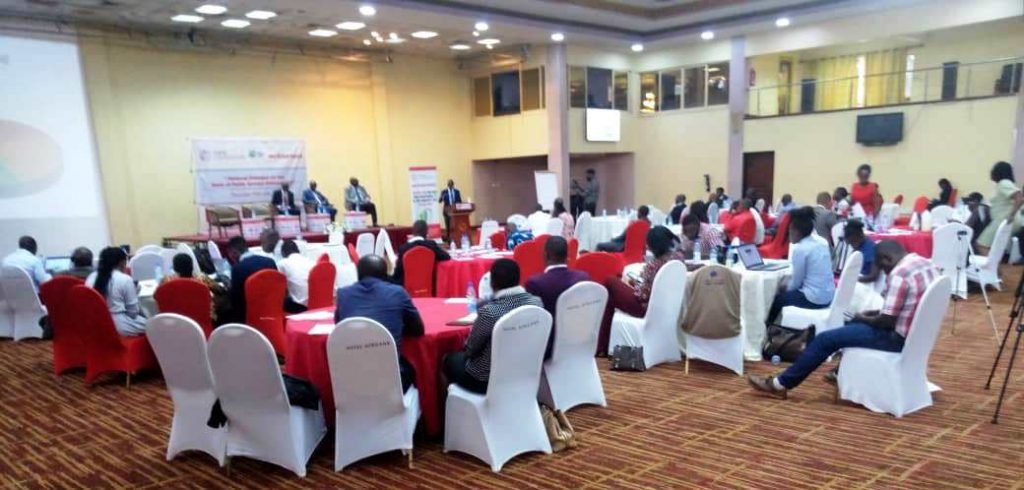
Recommendations
- Strengthen access to Information at health facility level.
- Building the capacity of Health Unit Management Committees to enhance their oversight function
- Address the funding framework by adopting alternative funding modalities
- Effective planning and emphasizing supervision thus strengthening the accountability mechanisms.
- Strengthen the role of IT in strengthening the medicines supply chain
- Emphasise HRBA using the tool provided by the National Planning Authority.
NEXT
ACCESS TO SRHR INFORMATION AND SERVICES IN KIGEZI SUB REGION
BACKGROUND
There is still a challenge with accessibility of SRHR information and Services at most of the Centres and Units all around Kigezi Sub Region
LOSCO in Partnership with CEHURD /COPASAH came in with an effort where a Hybrid Dialogue was conducted involving the Duty Bearers, Community Leaders and Health Service Providers to address the issue in a comprehensive manner. A consensus was reached appreciating that these services are still insufficient in most of the health units and urgently needs to be addressed to prevent the risky Maternal Mortality rates in Kigezi Sub region.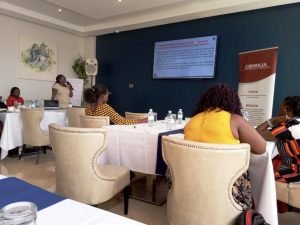
This was seen to have been partly responsible for the rise up of Teenage Pregnancies in Kigezi Sub Region because of the myths the youths and parents still believe in and limitation in movements for the services. This is also attributed to the mysterious deaths of youths and mothers due to un safe abortions.
A report was shared and the next steps suggested to the lead implementers of health Programs, there was a Media engagement to further spread the information and all this was coupled with a Radio Talk Show with the Local Leaders and the DHO that took up the responsibility to have this addressed with colleagues in the sector. Apparently Kabale District Local Government is following it through the Human Rights Based Approach in all program Areas and SRHR is considered among others like social justice and climate change.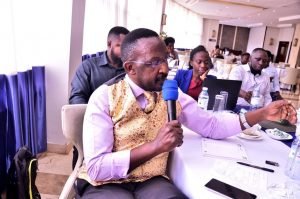
LESSONS
LOSCO observed that even the Leaders in the Health sector undermined the power of information and appreciated the intervention which should ultimately be cascaded out of the Health Centres to Communities that include schools and institutions of learning.
From the Implementation, LOSCO learnt and is from the subsequent engagements still learning that Participatory approach to the interventions is critical for the sustainability of the positive results if SRHR is to make meaning in not only youth livelihoods but also amongst the parents and communities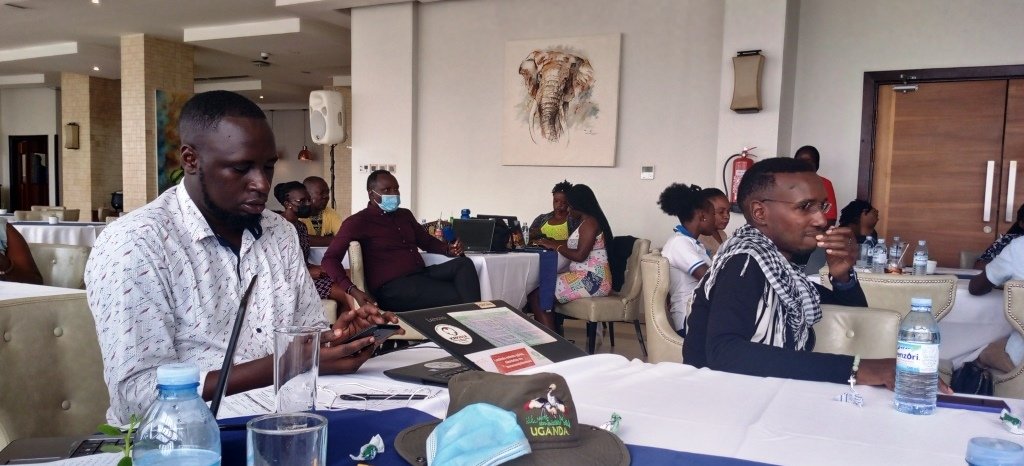
The best practice is using the Human rights based approach that will promote inclusivity where no one is left behind along the eco system of interventions and service delivery.
Other than the Traditional Norms and Values that Bakiga believe so much in, there is a challenge when it comes to consistence in our efforts to deconstruct the narrative that comprehensive sexuality education will be the best if not the only way out. LOSCO’s Capacity is still limited in the financial aspect of things. Every other issue is taken care of except that one.
LOSCO is however adopting the aspect of partnerships where different entities have been approached that include New Partners in Environmental Conservation to include SRHR information. Also LOSCO’s HRE Programming includes SRHR as a cross cutting issue when it comes to Addressing the Gender Inclusivity and Intersectionality approach. A coalition is soon to be established that will address Climate Change and SRHR is at the centre of Programming where RHU will be on board to support with Experience.
PROGRAM IMPLICATION
This will be scaled up through increasing Access to Sexual Reproductive Health & Rights (SRHR) services and information for all through community mobilisation in Kigezi Sub Region and also continuous awareness raising and promoting Health Service equity among the populations through social mobilization and accountability by citizens with good governance in health that are rights based. Otherwise it remains at a local level.
For this Scale up to materialize, there is need to consider taking the HRB SRHR Information Sharing to Schools and Institutions, Consistent radio talk shows targeting the working class and parents in their homes, engaging the duty bearers on a regular basis building their capacity and zeal to influence policy formulation on the same.
For the implementation to impact SRHR programming broadly, there must be intentional messaging targeting specific audiences and this be done on a regular basis because for mindset change, consistence is key.
RECOMMENDATIONS
To partners;
There has to be continuous Advocacy with Evidence and relationship building with stakeholders through continuous engagements
Ensure Compliance with the Law so the Advocacy efforts are not watered down through noncompliance crackdown
Need to work closely with the Communities especially the leaders and create partnership with governments in their regions
To the coalition:
Has to intentionally scale up if resources allow to cover a wider area (all regions)
Design uniform Messages to target different Audiences and all languages and disseminate through members
Train some media Houses and Journalists on the best way to bring the message home and intentionally select the Media Houses and Channels to use for a broader reach depending on the regions.
Offer support and referral information access points for more information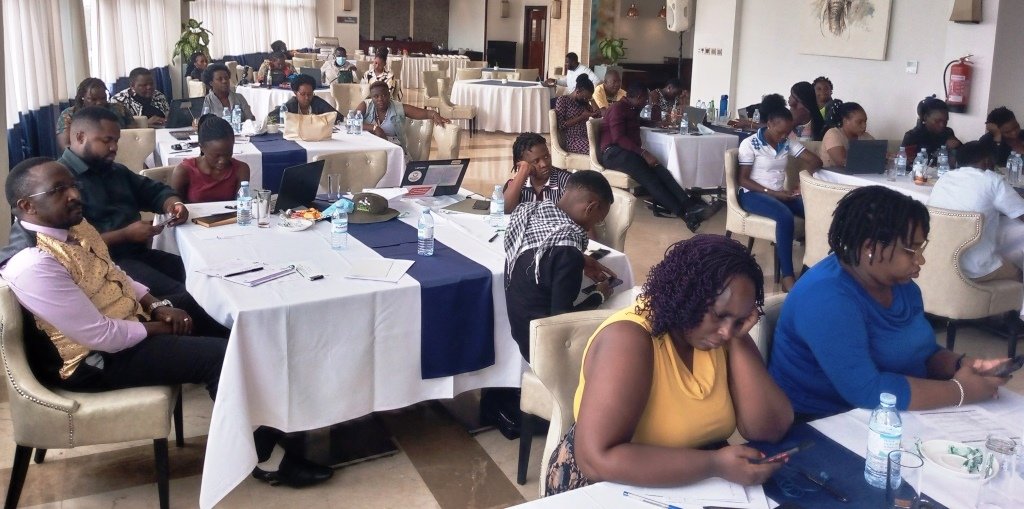
MoH;
Institute health corners for the young and key populations at all health units
Build capacity for VHTs to play a more supportive role than the usual routine work.
Train the Government Health Providers in providing specialised care and information services
Funders;
Support the initiatives partners are implementing like Medical Outreaches (Grassroots Approach), Information sharing materials and efforts
NEXT
SRHR MUCH A PART OF CLIMATE CHANGE PROGRAMMING
LOSCO and YADNET UGANDA was honoured to have a partnership meeting with the Margaret Pyke Trust, a UK-Based charity. The meeting happened in Kabale town at Cephas Inn.
The meeting was geared towards scaling up and building capacity of stakeholders at sub national and national levels on integrating SRHR and Climate Change in the policies and programs.
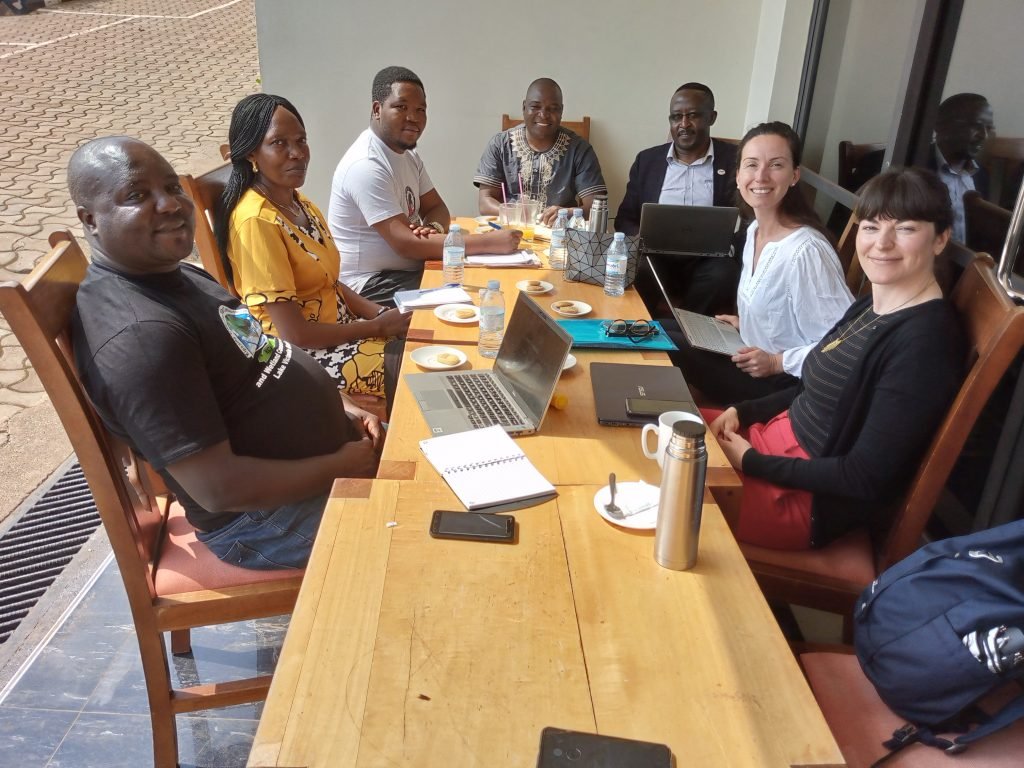
Notably, SRHR and Environment partners from Kigezi region were identified to kick start the regional integration agenda and these include; International Crane Foundation (ICF), Uplift Rural Poor, Reproductive Health Uganda (RHU), Local Sustainable Community Organization (LOSCO) and Conservation Through Public Health (CTPH).
At national level, the partnership will build capacity Youth and Civil Society to integrate SRHR and Climate Change in their programs through the YOUTH AND CIVIL SOCIETY ACADEMY and influencing Climate Change policy environment starting with COP27 processes and influencing national policies such as National Climate Change policy, National Environment Policy and National Determined Contributions (NDCs) working closely with Climate Action Network Uganda, Ministry of Water and Environment, National Environment Management Authority, Ministry of Health, Parliamentary Forum on Climate Change and SRHR Alliance partners.
At local levels in Kigezi sub region, local SRHR and Climate Change champions will be empowered to implement integrated approaches and influencing through media and duty bearers engagements.
As stakeholders, you are invited to participate in this capacity building and policy advocacy agenda to strengthen your capacity in integrating SRHR and Climate Change in your programs and projects.
YADENT Uganda looks forward to working with you to influence the SRHR and Climate Change processes especially towards and after the COP27(Climate Change conference) in Egypt in November 2022.
WHAT CAN BE DONE TO SCALE UP THE SRHR INFORMATION
- Build capacity of the Decision Makers for integrating the policy.
- Periodic engagements with stakeholders – Parliamentary Forum/ Committee on Climate change, NEMA, Min. of Health, and Ministry of Water to take this forward.
- Work with allies – Climate Action Network…
- Media Engagements – communicating best practices, legislators listen more from beneficiaries, radio talk shows, Community Engagements, webinars, social media,
- Cultural and Religious Leaders – Empowerments, Capacity Building, Review Meetings
- Working with Private Partners like UPMG, SRHU, JMS.
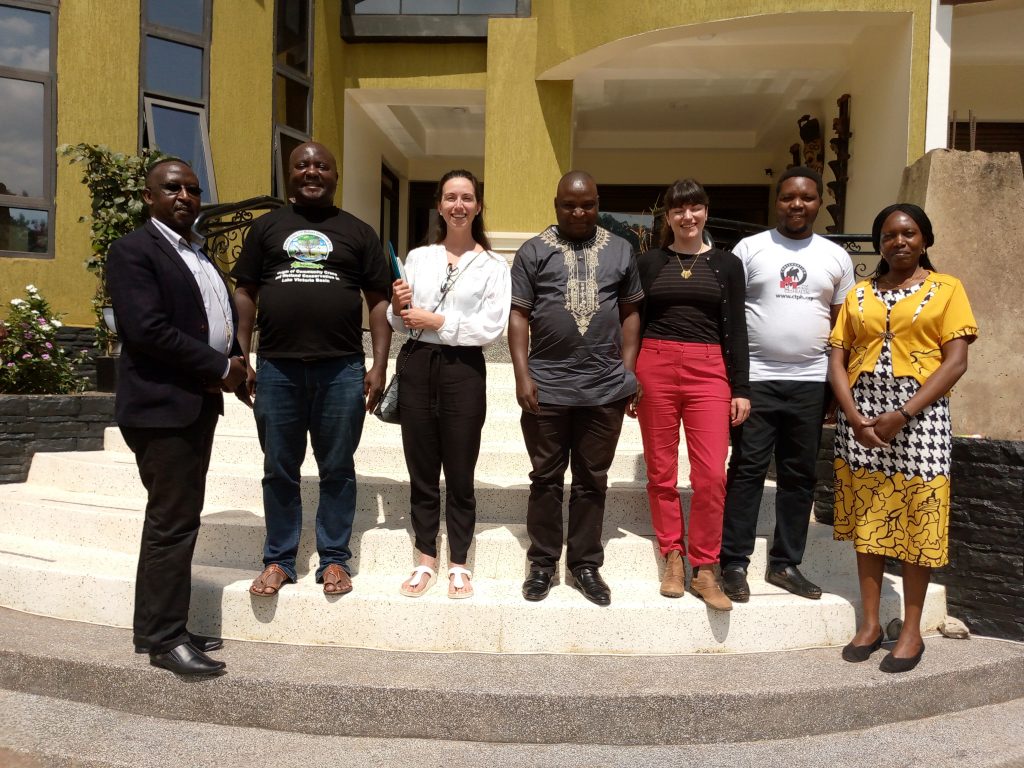
NEXT
IMPROVING THE ACCESSIBILITY AND ACCEPTABILITY IN GOVERNANCE AND HEALTH DURING COVID-19 PANDEMIC – NO BETTER WAY TO HANDLE IT
LOSCO identified Partnership as a key aspect in the development process with both internal and external CSOs Organisations and individuals as well as other government agencies to contribute to the achievement of sustainable development goals. On this great step, LOSCO had to make partners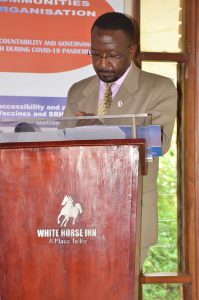 hip with CEHURD (Centre for Health, Human Rights and Development) and COPASAH (Community of Practitioners on Accountability and Social Action in Health) to bring this important dialogue in Kigezi sub Region of Uganda.
hip with CEHURD (Centre for Health, Human Rights and Development) and COPASAH (Community of Practitioners on Accountability and Social Action in Health) to bring this important dialogue in Kigezi sub Region of Uganda.
LOSCO is mandated to operate in the regions of Uganda with the coverage of 6(six) districts of Kigezi (Kabale, Kisoro, Rukungiri, Rukiga, Kanungu and Rubanda) with Head office in Kabale-southwestern Uganda.
It is paramount to employ a stretch of logic, which for starters, answers the question of the necessity of COVID 19, vaccination, SRHR services and information and any other relevant matter thematic to acceptability. The message must be geared toward changing the mindset from half heartless and indecisiveness to taking a decision. If one can use the imaginary of COVID-19, it is now the secret that is showing the trend of being the disease of the unvaccinated. Epidemiology has it that when the majority is fully vaccinated, hard immunity is attained. This means that the population will sufficiently develop immunity against COVID-19. Unhelpful criticisms have been mooted and ironically, the elites are the ones badmouthing the noble errand of vaccination against COVID -19. It is extremely important to add that those “ladies and gentlemen” are now the ones that are succumbing to the very COVID -19 they are making others not to vaccinate against and they are dying one after another in close succession at an alarming rate. Some repent at their death beds profusely asking for pardon over their frantic efforts against vaccination. Africans many of whom are known to be the copycats, coping everything western and consider themselves to be many notches above the ordinary; they have now copied the vaccination hesitancy therefrom and are likely to import more COVID-19 than we can handle now in new areas. They forget that their icons in the western world have their own cobwebs in their lives and he said that “if you can swallow the elephant you can swallow the nail”
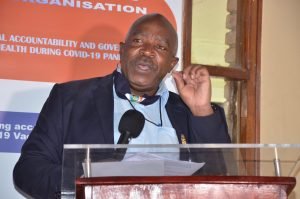
On the other aside on improving the accessibility, he urged that accessibility to vaccines can be informed by certain potential flash points and dynamics which have the capacity to shoot down the otherwise good intensions of the vaccination drive for example
- Poor working conditions can adversely affect health service delivery especially when say protective gear is conspicuously absent
- Support supervision with its satellite subsistence allowance dimmed. This makes health services look good from far but far from good
- Hard to reach areas ought to be embellished; they should be made attractive by commensurate enumeration.
- Corruption can easily compromise meritorious appraisals of health workers. This is extremely lethal to motivation.
Emerging disease like COVID when they emerge are new and are initial responses and there is limited research on this thus different communities responding differently. We need to come up with sustainability strategies to cope up with COVID-19 because it is here to stay. The more sustainable the more intervention is vaccination. It is for short time much as there was lockdown, we need to come out with more sustainability and acceptability. The following are the challenges that are mostly faced during the COVID -19 pandemic,
- Responses did not respond as expected that is why the used social media so as to bring health awareness to the people in order to improve on their lives.
- Transport for the sick was lacking. This can be solved by give the free transport and giving them relief.
- Irresponsible use of social media or regular media. This gives the health workers to guide where there is bias on the community.
- Misuse of SOPs, social distances .we should learn from the experience of HIV/AIDS and having majority of people vaccinated id the key
On the other hand, on improving the acceptability of the COVID -19, there must be participation of the corporate organisations. It dispels mistrust of the government accountability and it becomes vital for example giving out donations and thus increases also the interest in vaccination process.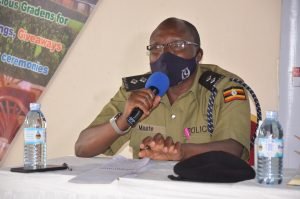
Government was urged to keep looking forward to protect the citizens and it is their command especially the security forces to see that there is security among our citizens for example danger, protecting them from diseases and any other protection. In the prevention, you are aware we have been working in order with other stakeholders in prevention and enforcement of laws to the citizens. COVID has affected people economically and that is why we emphasize sensitisation, if everybody knows the importance of being affected it is better than fighting people are. Radios, Media were used in the prevention of COVID 19 and vaccines.
It is the role of the government to improve on the welfare of the people and we should also play individual roles, should know that the life is personal to avoid social circumstances and weather vaccinated or not keep adhering to the rules and regulations. It is necessary to behave responsibly, helpfully and correctively and should respect local leaders. if all the people were vaccinated weather or not vaccinated had adhered to the rules and regulations Kigezi would not have been topped as the most affected part in Uganda with COVID -19. To those who were driving over tine were arrested because of curfew and if anyone is found doing crimes he/she should report and come up with evidence no one can work in isolation but with one another.
The reasons for the increased teenage pregnancies were also,
- Closure of schools and churches. They used to get the information from the senor women at school’
- Unawareness of parents to be home for two years. Children are now seen as a burden in most of the homes.
- Lack of access to pregnancies. Most of the teenage do not have people who can teach them the impacts of pregnancies when they are still young and they end up being pregnant. Therefore parents should sit down and talk to the children about the dangers of being pregnant at an early age
- Restrictions not implemented for example gatherings and campaigns being open. if it is a law or directive let it apply universally.
- Increased pregnancies and HIV/AIDS is due to lack of awareness. Most of them are being impregnated by their fathers ,brothers, cousins and many others.
Community members are willing to take vaccines though others are refusing to take but health workers are reaching in communities for those ones who cannot move to health centres to take vaccines. Health workers are saluted for the great worker they have done so far and continue to do, we are beginning to see them reaching out to communities to ensure vaccine accessibility for all.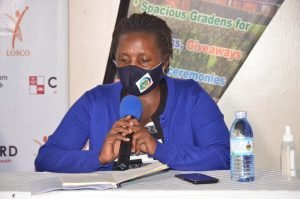
CHALLENGES IDENTIFIED ALSO INCLUDE:
- Communities holding rumors of COVID -19 for example that when you take the vaccine you become infertile
- Fearing to go for vaccination because of side effects
- Beliefs about the vaccination for example that when you vaccinate he or she will die after two years
- People putting on masks just because they want to pass road blocks
- Fear of contradicting the disease especially the health workers
NEXT
HIV/AIDS PREVENTION IN KIGEZI AND UGANDA
Facts about HIV/AIDS
38.0 million [31.6 million–44.5 million] people globally were living with HIV in 2019. 1.7 million [1.2 million–2.2 million] people became newly infected with HIV in 2019. 690 000 [500 000–970 000] people died from AIDS-related illnesses in 2019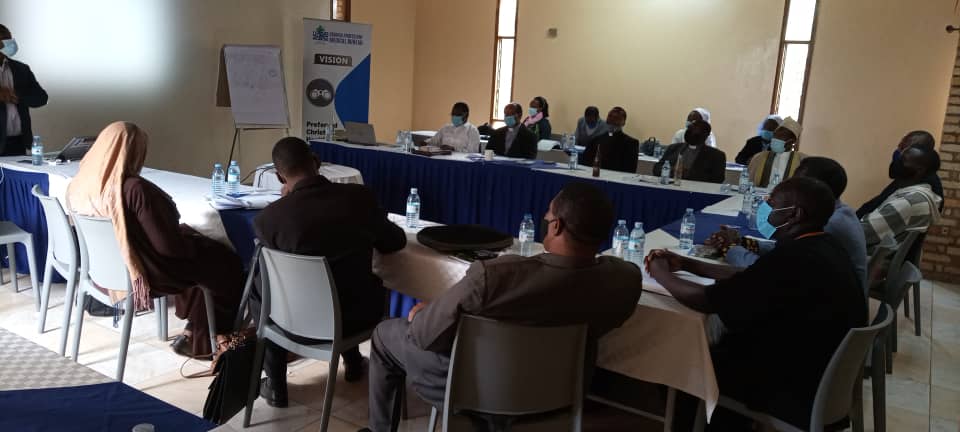
Uganda
The estimated total number of people living with HIV (PLHIV) was 1,400,000 (1,300,000 – 1,500,000) as of 2018, Has 1,000 new infections and 500 deaths every week. HIV Prevalence- 6.5% which Prevalence of HIV among adults aged 15 to 64 in Uganda is 6.2%: 7.6% among females and 4.7% among males (UPHIA, 2016). An estimated 1.4m people are living with HIV. Of these, 1,041,000 are enrolled in care and 980,954 are on antiretroviral treatment by March 2017. Every day, approximately 151 people get infected with HIV in Uganda. Of these 67 (44.1%) are young people. HIV is a major cause of sickness and death among adolescents, young people and men. HIV prevalence peaks at 14.0% among men aged 45 to 49 and 12.9% among women aged 35 to 39 (UPHIA, 2016). Among young adults, there is a disparity in HIV prevalence by sex. HIV prevalence is almost 4x higher among females than males aged 15 to 19 and 20 to 24. HIV-infected men who are unaware of their HIV sero status and not accessing treatment are the main source of HIV infection for adolescent girls and young women.
Access to HIV Services
ART is readily available in public, faith based and private health facilities that are accredited by Ministry of Health and It is free of charge. It is provided to clients in a differentiated way based on client needs. These HFs also provide care & support services e.g. psychosocial support, nutritional assessment, screening of opportunistic infections, family planning, and others.
Major Ways of Transmission
Sexually, Mother to child transmission, Needle prick accidents, Blood transfusions
Recommendations
- To end AIDS by 2030, there is need to build on the successes achieved, address HIV vulnerability and barriers by doing the following:
- Engage men in HIV prevention and close the tap on new infections particularly among adolescent girls and young women
- Accelerate implementation of Test and Treat and attainment of 90-90-90 targets particularly among men and young people.
- Consolidate progress on eliminating mother-to-child transmission of HIV.
- Ensure financial sustainability for the HIV response.
- Ensure institutional effectiveness for a well-coordinated multi-sectoral response.
- As Human Rights Defenders, we need to put the equal amount of Effort or even more as it is with COVID-19 and ensure this comes to an excruciating end.
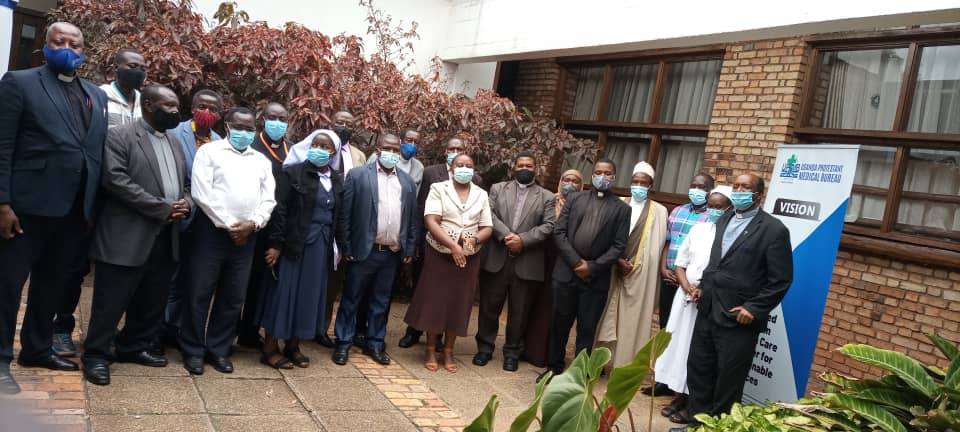
A Team of Selected Religious and CSO Leaders committed to champion the innovation in Kabale District in Partnership with UPMB, USAID
NEXT
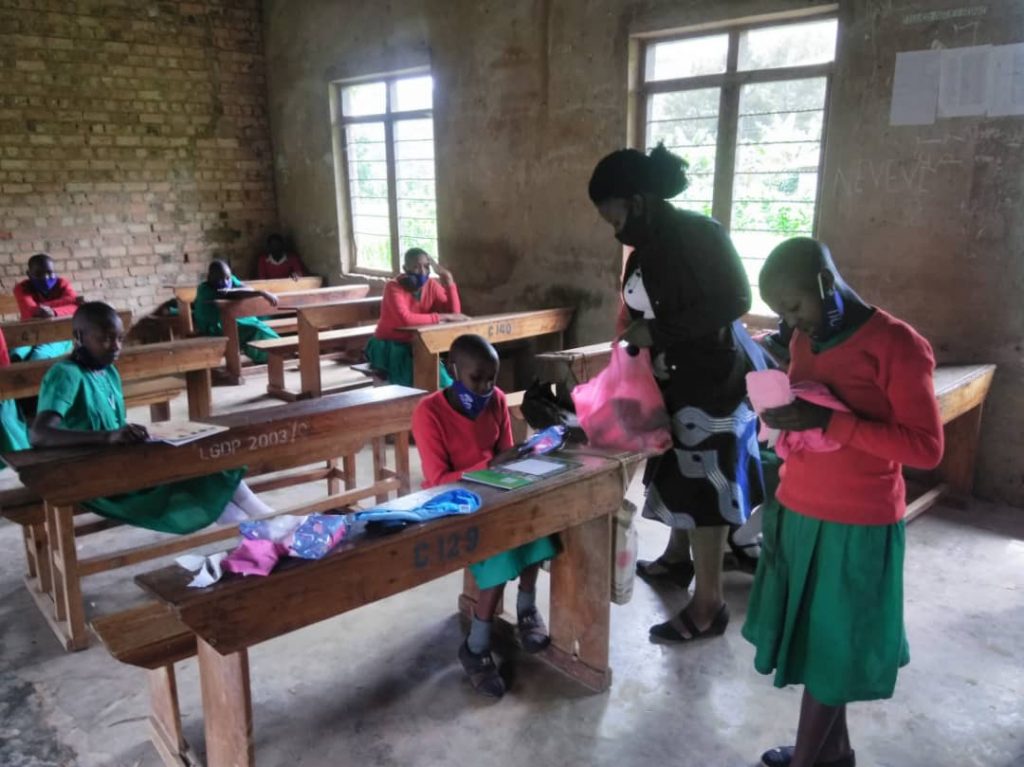
Menstrual Hygiene, Primary Health Care, HIV/AIDS, Nutrition support
Some of the Girls being taken through a session on using the Sanitary pads and also taking care of their Hygiene in partnership with Garden of Prosperity Women Development Group
